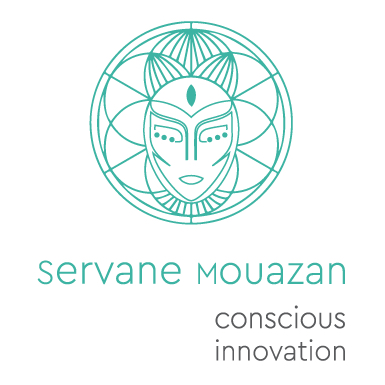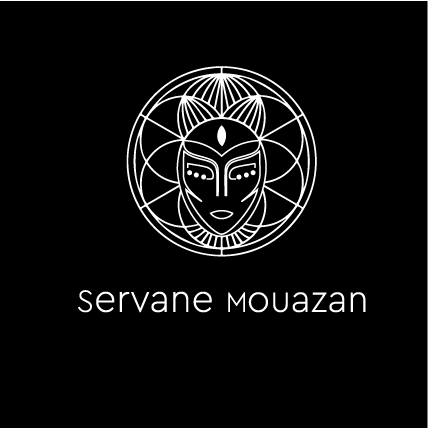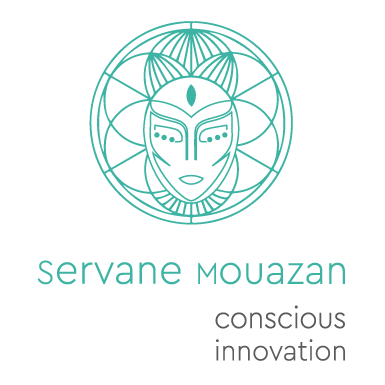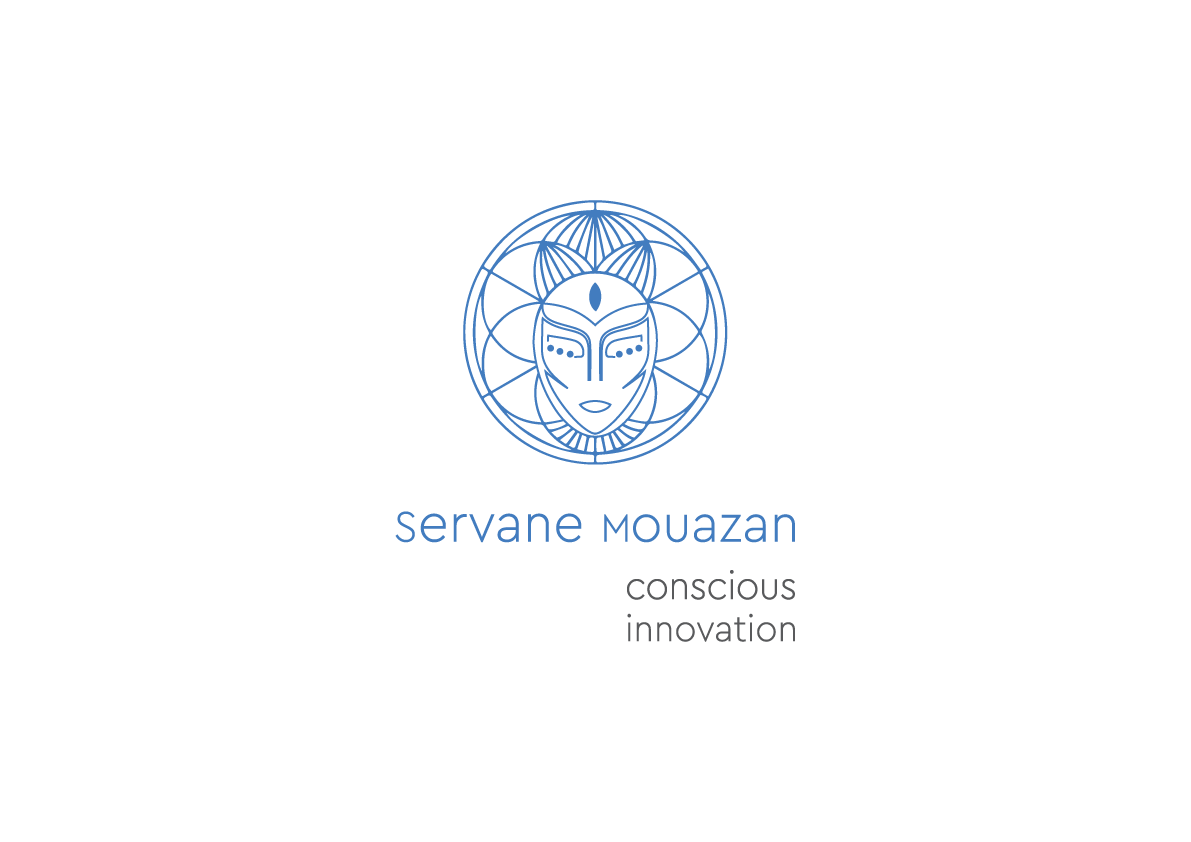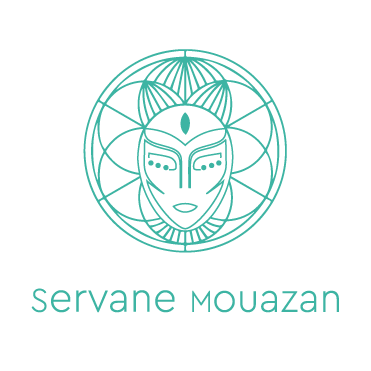How Openness Helps Finance Professionals Move Money for Good with Roshana Arasaratnam
In this episode of Be & Think in the House of Trust, I am listening to Roshana Arasaratnam, a woman in Sustainable Finance, working across the private, public and not-for-profit sectors mobilising capital to achieve social impact. She is Executive Director at UK Government Investments (UKGI) and teaches sustainable finance at the Cambridge Institute of Sustainable Leadership.
Roshana describes her career as a ‘squiggly’ career, moving between the private, public, and not-for-profit sectors, but connected by her purpose of helping financial professionals move money for good.
We discuss what it means to be a specialist generalist, how trust and openness can play an important part in investment decisions, and why Roshana has dedicated her career to breaking down barriers and championing investments that generate a positive social impact.
Highlights from this episode:
(01:13) Breaking down boundaries between disciplines
(04:05) The importance of bringing sectors together
(08:28) The fear and power dynamics in capital markets
(11:24) Investing in trust
(13:37) What is a specialist generalist?
Useful Links:
Connect with Roshana on LinkedIn: https://www.linkedin.com/in/roshana-arasaratnam/
“The logic of collective action” by Mancur Olson, Jr. https://www.hup.harvard.edu/catalog.php?isbn=9780674537514
“Range – Why Generalists Triumph in a Specialized World” by David Epstein. https://davidepstein.com/the-range/
{{footer}}
Transcript
Good morning, good afternoon, wherever you are in the world. This is Servane Mouazan from Conscious Innovation. And at the moment we are digging deep into the concept of trust through our learning project called The House of Trust. And it's aimed at people like some of you who love to invest and positively influence social change.
So trust is a very vast topic. It touches our political systems, our homes, our workplaces, our communities and our inner lives. Um, there is never enough conversation or exploration about trust. So today we're gonna have another one and, uh, I'm thrilled to welcome Roshana Arasaratnam today, who is a specialist in sustainable and public finance among many other things.
And, welcome Roshana.
Tell us a bit about you, who, who you are briefly just to, just so that people know who they are listening to, who you are and what you love to focus on in your life and work. Sure.
So I am Roshana Arasaratnam um, my why is, you know, how we break down boundaries between disciplines and organizations in order to move money for good.
And I'm agnostic about, you know, what sector or where that operates. Um, but what I'm really interested in the moment is about social policy, uh, and how we bring that into the financial arena, and particularly maybe how financial services are, are thinking about that. Um, so I've had a squiggly career moving between the private and public sector and not-for-profits and, um, across disciplines as well.
So, am an Economist and a chartered accountant. Ive probably lapsed in both of those, but, um, also i have an interest in social policy and organizational design as well.
Wow. So I'm hearing that you speak many, many different languages, "sector languages". You have many, a lot of different content. You head must be very, very busy.
Um, I think I'm a translator. I'm trying to help people communicate across that, these.
Fantastic. We need more of you. So, Roshana, I'm curious, what is your definition of trust, in a nutshell?
Yeah. This, um, cuz you, you know, kindly shared the question in advance. It really got me thinking. And so I am an economist by training.
I mean, that's my primary discipline. Uh, and I went, I went back to economics, um, and when it isn't really actually defined in that way but I think it's about kind of that free exchange, kind of one-to-one or between groups without the monitoring and without the checking in. It's kind of that kind of openness to exchange.
Uh, and actually when I was thinking about this, it really took me back to, it's my undergraduate dissertation was actually on a book called The Logic of Collective Action, and it's a book by Mancur Olson. So it's not an economics classic, but it's about how groups come together and why do groups form.
And um, and I think at the heart of that is about trust. It is about how we open ourselves up to accepting, and in economics it's kind of that exchange. And we kind of think that's quite transactional, but actually it's kind of more than that. Um, so I, that's how I, I don't think I have a definition, but I think that's how I sort of approach it.
So it;s the exchange and it just, it, it feels as it connects back to that role of you, yours, which is being a translator. Is that easier when you are a translator to facilitate exchange or to be the exchange when you are, when it's easy for you to translate it, to have knowledge or understanding awareness of different worlds?
I think it's really important you're gonna bring sectors together, particularly between private and public and the not-for-profit. You need that empathy to build, break down those boundaries. And I think we are gonna need that approach if we wanna move capital for good. So I think it's really important.
Oh, it's definitely been a driving force for me to do that, uh, across different sectors.
So we've got, so let me just see what I'm, what, what dots I can connect here. You've got the translation, you've got knowledge and awareness of different sectors and, and, and content and fields of works. You have that empathy to make that exchange flow nicely.
And there is an article of you recently, uh, on social media, which has a great, great success and it really resonates with me as well very much so. It's called Specialist Generalist will Save the World, and it's pretty much what you've just said, right?
Yeah, so that was inspired by, I have a friend who set up a consultancy and she calls herself a "specialist generalist".
And then there's also a book called Range by David Epstein. And, um, it really speaks about how important it's to have people who can move a lot across sectors and disciplines. Not, not everyone has to do it, but it's important to value that as a skillset. And I think at the time, I mean, I've just left a corporate role in the big organization, was there for nearly a decade.
You know, I'm finding having that conversation with recruiters and others a bit difficult cause they want to put you in a box. And actually if your value is actually being a connector, then you don't wanna be put in a box. You want to say, my value is actually I can do different things. And you need, you know, you need the specialist, but you also need the wide angle lens to bring in, um, new ideas and.
You know, I teach a class in Sustainable Finance at Cambridge, and when I see the people, I see other people on squiggly careers because specialized in human rights, who are now working in E S G, or lawyers turned impact investors. So they also are trying to break down these barriers and silos. in order to say if we want to move money to do good, we are gonna have to let go of some, maybe something that we are doing now, or we need to bring in something new from a different area as well, because no one person or area has the answers.
If we had the answers, it's just thre wouldn't be an industry in sustainable finance, like, would be done
It's true for a lot of things. Right, exactly. I wonder, you know, I'm curious about people's assumptions and, and, and, uh, thoughts and feelings and, and, and just, I'm always want to check what's in the way. So about, um, for instance, the recruiters.
What would you, what do they assume that might currently stop them from trusting a sort of untraditional background, uh, in the sector?
Well, I think as you know, as soon as someone strays from the norm or the escalator path, I think there's always a question mark about, well, what's this person trying to do?
And then it might get us like, well, are you really committed to. Or where can you do, you know what, how deep really is your expertise or is there a reason? And then I haven't been moving frequently, but I have moved between sectors, so I think it just raises a question mark for some people.
Mm-hmm.
I would've to say that actually in those years when you move, that's always been my biggest growth because that's the year when you learn the most and you are most challenged. One move between private to public sector actually probably didn't work out that well for me. And I, you know, I didn't necessarily say that well, well, as long as I thought I would.
But actually the move when I moved from the public sector and the private sector, the point where a lot of public sector organizations were coming to the cattle markets, I think having come from that sector very much, hopefully built empathy cause. I, I came from a sector that was going to the capital markets and also had that credibility with investors and as well, but also you are trying to deal with fear.
I mean, why does trust not build? It's about fear and a sort of power dynamic as well. Mm-hmm. and I think in all areas of financing there is, you know, here's the investor, here's the investee who holds their power, and it's, and it's exactly the same dynamic in not-for-profits and with grants and the same dynamic with the public sector between taxpayer and public sector or even central government and local government.
And so, for me, actually, having moved between sectors, I think I would hope breaks down some of those barriers of fear and helps to build trust. And I think as the state, I still think it's at the heart of moving capital because if you think about all the moves towards disclosure or even impact investing, there's still this accountability which is kind of at the heart of it. It's like, I don't trust you to do with, I'm giving you this money to do this, but I don't trust you to do it without putting in place these parameters.
And I'm, I'm not saying that we should get rid of, you know, having a percentage return or an impact, but I'm just saying that's part of it i can be part of that discussion. And I find that at odds with, so i am on the board of a women's rights organization and we're really trying to push flexible funding, so we give money to our partners, but when we don't necessarily specify what it's for, to kind of unpick that construct, but that's really at odds in a way with almost the... in some way impact investing, which is very much we're strengthening that accountability and maybe controls, if you see it that way, Um, or even, you know, that increased disclosure as well. So I think there are sort of contradictory forces that are kind of pushing against what we're trying to do. Mm-hmm.
Do you have a sort of, um, um, a story there, that illustrates, or, you know, I'm keeping in mind confidential, confidential data. Uh, is there a story that can illustrate as well, um, uh, this element and more of these elements that constitute trust, these unconditional things? You mentioned empathy. You mentioned flexibility, you mentioned that "translation" effort. You mentioned a lot of things already. Do you have a story?
I think just on a very personal basis, I recently invested in a startup. Yeah. And you think as a finance person, you know, I'd look at every business plan and do all the checks. I, I didn't do any of that.
Mm-hmm. , you know, I fundamentally believed in what they were doing. Mm-hmm. , I believed in the people. Mm-hmm. and I gave them my money. Mm-hmm. so. That's an extreme, that's an extreme version.
But, you know, I don't regularly watch Dragon Den, but you know, when I talk to people who are in FinTech or um, venture capital, I mean, they essentially are investing in the person.
They're trusting that that person or the team can deliver. It's a bet. And, you know, there's a probability, but that's what they're investing in. So, I just think on the, a very personal basis, we, we made these decisions every day, right? On where we invest, you know, whether it's our time or effort or energy mm-hmm.
and all of those things, you know, not even money and in all of those things is an element of, yeah, that it will be reciprocated as well, which is also a big part of economic, you know, economic is that, you know, you build trust to have that. Ity as well. Mm-hmm..
So Roshana, let's go back onto that specialist generalist topic, not "issue" topic.
Yeah. And um, and I, I'm curious too, and just to, I'm aware that well many, many people are like that in the world and scratching their head as a, how they can share all the good they can bring in the world and now they can share that to more people and, and be heard and how they can contribute. So what's the mechanism for building inner trust when you are a specialist generalist in that social impact investment ecosystem?
Yeah, no, I was thinking about this as particularly sort of what does inner trust look like, is that, you know, how do you internalize it so, I think out in the world it's always just about ha having that open mindset.
It's sort of, I think, specialist generalists, we find everything interesting, so, oh, here's a thing. So we're a little bit magpie about it. Mm-hmm. . But what we're trying to encourage everyone, or invite people is to keep being open, to be, to keep looking across and find value in all sorts of different things and not to close down opportunities.
Um, so that's what we're, I think we're sending out into the world.
I mean, I have to say, not... I think the issues in all professions, but I think particularly in finance there is sort of given, well, we know we have ways to do this. We've always used these metrics. This is the risk and return paradox that we are used to.
and I think, you know, we still are moving the dial between risk, return and impact that, you know, that's where we're trying to move towards. So I think the best thing is always just to, you know, trust in your North Star. Like this is what we're moving towards. Mm-hmm. , you'll find your community. So from that article, just a number of people who said, oh yes, this really resonates with me and how I'm trying to fill, fill my box, you know, trying to fill lots of boxes. But then I think in terms, it's really an invitation for other people to keep being curious and open, and to understand that we don't have the answers/ None of us has the answers, so to keep working together.
That's interesting. That element of collaboration and search and quest about solving a problem together rather than talking about the job you want to do cuz the jobs evolve, uh, when you have a, a big problem to solve, right? Yeah. I saw an article not so long ago about asking kids, instead of asking kids, oh, young people, what do you wanna do when you grow up - to instead ask them, what problems do you want to tackle...
Yes.. and why do you want to tackle them? Exactly. So not only the what, but the why because that's gonna be the driver. That's the thing that's gonna make sense when you look back and,
That's so, uh, interesting is and, uh, to know how to do it then, then I have to offer you the job.
Yeah. Well, yes, but I think it's an understanding that, you know, no one person has the answers. What the specialist generalist is gonna be really good at is that sort of joining the dots or bringing those left-field ideas and keeping that sense of openness across lots of different people who will all be bringing their special talents as well.
Oh, this is wonderful. I mean, thank you for giving us pointers to look at that notion of convening, of connecting the dots, of inviting people to collaborate and join a conversation of being open to all the knowledge and the awareness in the room so that we've got a big, bigger picture of what's really going on.
And, and to serve a purpose, uh, with all these, these elements. Thank you so much. You're welcome.
Thank you so much.
You're welcome.
Is there anything else you want to invite people to think about before we close this conversation, Roshana?
I think just to be, yeah, continuing to question yourself about your own openness and new ideas, because even the impact investing community or the sustainable finance. We are also guilty of our own bubble and, and not being open to the world And so, you know, with with the crisis in Ukraine, you know, there has been a lot of criticism about, well it's just the end of E S G and actually, I think it actually opens up to, we would need the scrutiny about where values come with moving capital.
So I think it's sort of, yeah, to keep sort of questioning, well, "How open am I to new ideas and new ways of thinking?" Mm-hmm. , um, because that's what's gonna keep, keep moving us forward.
What a wonderful homework that you're sharing with us today. Thank you so much, Roshana,
You're welcome. Thank you so much for the opportutiny.
Wow, what a lot to think about today. I'm glad to hear that the notion of specialist generalist, can totally be associated with impact investing and social finance and that there is value in the rich experience that we bring in, not just spreadsheets. I love the ideas as well of, um, connecting the dots.
That leads me to our next guest, Katie Brown, who is also someone who connects dots and she's totally open to new conversations and to discovering new perspectives. We'll be talking about transitions, how you move on from one space to another in your life, and how you negotiate this change, especially when you operate in a sector that requires you to be quite technical.
What permission do you seek? So I'm looking forward to this. The show is available to listen to anywhere you can find your podcasts and it's completely free. And for more insights, events and resources, you can head to my website servanemouazan.co.uk and subscribe to my regular conscious innovation updates. This is Be and Think and the House of Trust.
Bye-bye.
